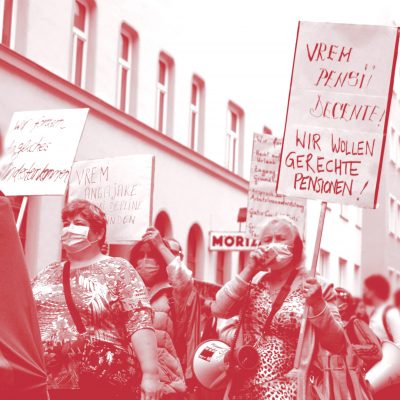Article
Landecker Democracy Fellow Katarzyna Słubik is the President of the Board at the Association for Legal Intervention in Warsaw.
The access and right to justice and an effective legal remedy are cornerstones of democratic societies. Migrants in Poland are in a disadvantaged position in terms of exercising their rights to participation and effective remedies in migration procedures.
Language or cultural barriers, lack of knowledge of the Polish legal system, and the lack of funds prevent them from seeking appropriate legal remedies. Sadly, decision-makers take advantage of these vulnerabilities and systematically violate the migrants` rights. Those problems are now amplified by COVID-19, as the scope of free legal assistance has significantly decreased during the pandemic.
Language or cultural barriers, lack of knowledge of the Polish legal system, and the lack of funds prevent them from seeking appropriate legal remedies.
Katarzyna’s project, called ‘Know your rights!’, aims to improve access to justice for asylum seekers, refugees, and migrants, and to ensure equality before the law for minority groups. The tool will not attempt to address all legal needs of migrants and will not replace quality legal assistance. Many situations are complex and require personal counseling. However, in a generally unfriendly administrative environment, providing support for basic submissions is already a big step in the right direction. It will be particularly useful to migrants who are isolated (in detention, reception centers, or during lockdown), cannot receive affordable immediate legal assistance, and are at risk of missing their deadlines or being denied emergency services.
Katarzyna’s project will develop online tools for migrants residing in Poland to increase their capacity in migration procedures. The tool will provide individualized basic submissions with clear instructions.
Katarzyna’s project will develop online tools for migrants residing in Poland to increase their capacity in migration procedures. The tool will provide individualized basic submissions with clear instructions. All published materials will be prepared by, consulted with, or reviewed by a panel of legal experts. The website will have to satisfy a range of demands. Firstly, in complex cases, a set of questions will have to be answered before a template is filled in and downloaded. Secondly, the tool will automatically fill in the address of the competent administrative body. Thirdly, in the case where legal consultation is required, it will locate the nearest lawyer offering pro bono services. Finally, there will also be a range of video tutorials where migrants themselves explain how to navigate certain procedures.
The online tool will be available in at least three languages.
Further Resources
-
Landecker Fellow Katarzyna Słubik discusses the ongoing migration crisis at the Polish-Belarusian border
In a recent interview for Kultura Liberalna, Landecker Fellow Katarzyna Słubik talks about the current developments at the Polish-Belarusian border.
-
Landecker Fellow Katarzyna Słubik: Podcasts on Poland
Landecker Fellow Katarzyna Słubik appeared on two podcasts to discuss Polish borders with Belarus, Poles' public opinions and fears, and more in two podcast episodes.
-
Landecker Fellow Katarzyna Słubik interviewed about current developments at the Polish-Belarusian border
Landecker Fellow Katarzyna Słubik was interviewed about the current developments at the Polish-Belarusian border for two news outlets.




